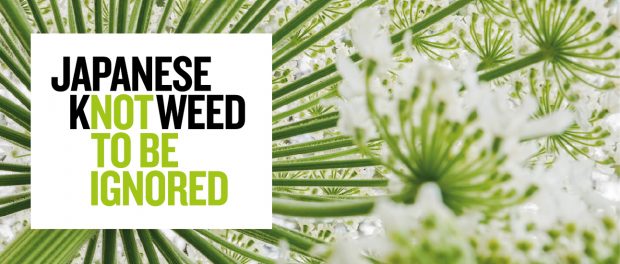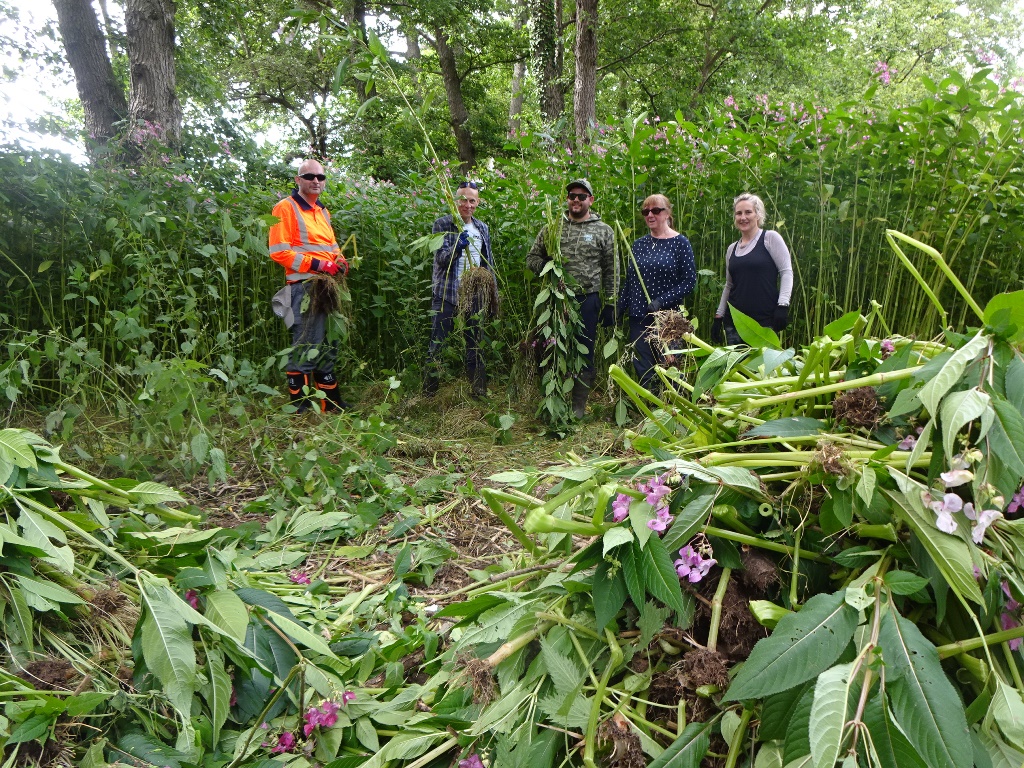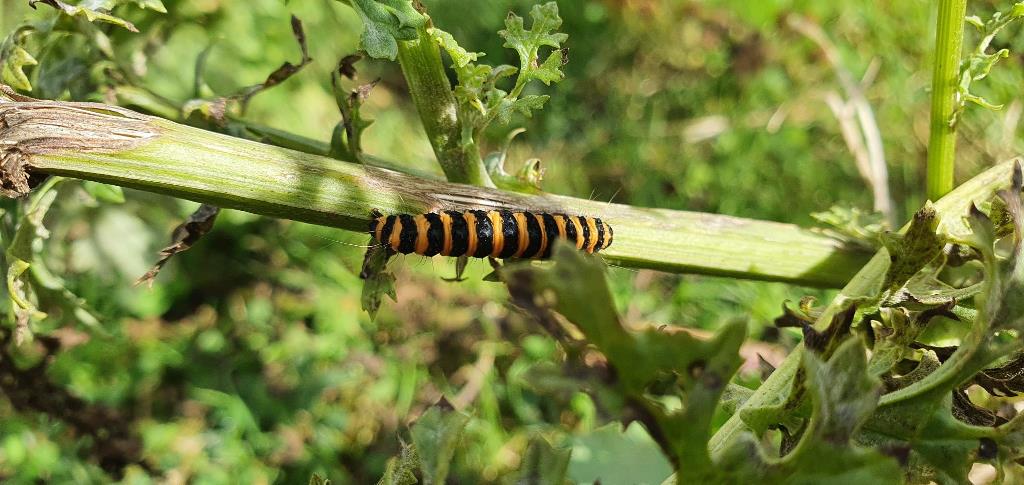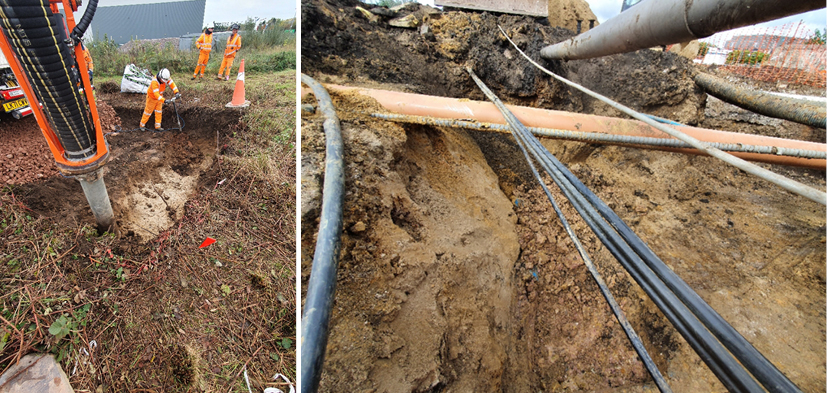What are the best methods of weed control and contaminated ground removal in the UK today?

Commercial businesses, and particularly the construction industry need to be sure they’re paying for the best solutions available for weed control. Here we discuss two options we predict will become more widely used in 2023 both for invasive weed management and for asbestos contaminated ground removal.
- IWM
IWM – or Integrated Weed Management, is the industry buzz word this year, but what does it mean? The weed industry standard approach is either herbicide or excavation, the former using the chemical herbicide Glyphosate. Whilst Glyphosate is the optimum chemical for providing a long-term solution, there is no doubt the Glyphosate debate will continue well into 2023. But does adopting IWM as part of the process make a real difference?

Some of the Japanese Knotweed Ltd team on a day of Balsam Bashing.
IWM uses weed control methods alongside herbicide spraying, meaning less chemical is used but in a more targeted way. Additional modes of treatment may include hand pulling (highly effective for Himalayan balsam eradication as pictured above), mechanical or biological methods (such as use of Cinnabar moth caterpillars to control Ragwort as pictured below), or a mix of any of these.

Common ragwort can often be identified by the presence of Cinnabar moth caterpillars (Tyria jacobaeae), as these caterpillars feed almost exclusively on Ragwort. The caterpillars are very distinctive with black with gold stripes and grow up to 30mm long.
IWM is especially beneficial for clearing unwanted vegetation or weeds along highways, industrial sites, railway tracks, pipelines, sub-stations, forestry, reservoirs, and water ways. But why is IWM becoming important?
The impact on the construction and property industry
- Construction companies and commercial businesses are often challenged to meet environmental sustainability targets.
- Property and facilities management companies need landscaping solutions that are easy on the eye and on the budget.
- For property developers, the next generation of home buyers will expect to see a legacy of improvement when it comes to keeping their environment weed free.
What are the benefits?
Protecting the environment will be a part of most business strategies in the long run. If there was ever a more important time to look at alternative solutions to commercial issues, that time is now! In fact the growing threat of invasive species is said to be the second largest risk to biodiversity after habitat destruction. They need to be controlled, or we will continue to lose native species.
IWM is probably most important to consider for weed control, providing benefits such as:
- Minimised chemical usage with targeted herbicide treatment
- Reduced risks associated with herbicide use such as storage, handling, use and disposal
- Safe and effective weed management in public open spaces
- Reduced reliance on mowing regimes by creating wildflower meadows in green spaces
- Options for land rejuvenation to make good areas that have been excavated
Are there any downsides to IWM?
On the whole – no, but maybe a few considerations, such as when planting wildflower verges the seed mix needs to be carefully chosen so as not to plant dominant varieties that will out-compete the others, and die back can be a little scruffy for a short period of time. Some alternative methods such as biological control may take longer to implement but will have better long-term results.
Conclusion
IWM provides tangible benefits to businesses, helping them to reduce their environmental impact by lowering their carbon footprint and enabling a sustainable strategy for weed control. There can be cost benefits too, with fewer yearly treatments and obvious environmental benefits with less chemical usage. Adopting IWM into a business plan requires a solid strategy and listening to the best advice from experts in IWM.
- VACUUM EXCAVATION
It is widely known that to completely eradicate invasive plants such as Japanese knotweed and asbestos contaminated soils from construction sites the only real option is excavation and removal to a licenced landfill. But what about when your site has infrastructure such as pipes and cables, or is an SSIP site with endangered species and environmental concerns such as waterways or protected woodland? Could vacuum excavation be the answer?

What is it?
Vacuum excavation involves the use of suction generated by a vacuum lorry delivered via an air lance in order to agitate and remove material (typically soil, earth or water) from the ground. Compressed air is directed through an insulated air excavation lance to loosen, agitate, or aerate the ground initially. The loosened debris is then safely removed by the vacuum.
The benefits
The vacuum extraction method is a much less invasive method, mostly used when a contract requires working around infrastructure, existing utilities or natural habitats but can also be a good option for trial holes. But let’s look at some other benefits:
- Using less equipment and vehicles on site reduces the carbon footprint.
- Being able to work around trees and live utilities without risk of harm or strike makes it a safer and more sustainable option that is kinder to the environment.
- It is generally a quicker and more efficient method of Japanese knotweed removal as it limits disruption to local residents, businesses and services.
- A safer option than traditional excavation it also leaves behind a cleaner construction site
- The working site is generally smaller with access only required for one vehicle instead of excavator and cart away vehicles.
Conclusion
Any business looking to adopt more sustainable methods that reduces carbon footprints and protects biodiversity whilst still delivering great results, IWM and Vacuum excavation are two of the best options out there. Invasive weeds will remain problematic in the UK for decades to come. It’s not just Japanese knotweed that causes a headache for construction and property sectors, Giant hogweed, Himalayan balsam, Horsetail to name just a few of the other Invasive Non-Native Species (INNS) all need to be controlled. Aquatic weeds can grow up to 20cm a day – wreaking havoc on British waterways. And asbestos contaminated ground required licenced contractors to remove the soils safely and following legislation.
For more information on these and other methods used to remove invasive weeds or contaminated ground get in touch with Japanese Knotweed Ltd or our sister brand Environment Controls.
Or call us on 0333 2414 413

